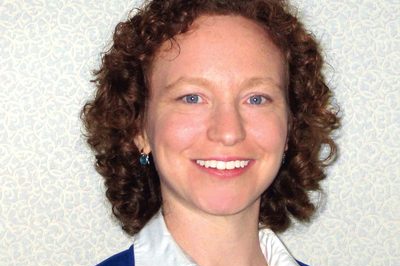November is National Adoption Month. It seems a particularly good time to celebrate, since Florida has recently overturned its ban on adoption by gay men and lesbians. Here, then, are some resources for LGBT adoptive parents and prospective parents.
The U.S. Department of Health and Human Services has a special page for the month, and even includes information specifically for LGBT parents. See childwelfare.gov/adoption/nam and click the “Diverse Populations” tab.
The Human Rights Campaign also has a special National Adoption Month page, with links to information and videos for both prospective parents and child-welfare professionals, along with news and event listings. Many of the resources are taken from its ongoing “All Children — All Families” initiative that works with adoption and foster-care agencies across the country to implement LGBT-inclusive policies and practices. See hrc.org/adoptionmonth2010 for information and a list of participating agencies.
In Massachusetts, we are also lucky to have the Massachusetts Adoption Resource Exchange, which connects the Department of Children & Families, private adoption agencies and prospective parents. They have held informational sessions just for LGBT people, and encourage us to attend general sessions as well.
In their listings of children available for adoption, MARE also makes a point of noting when children are open to two-mom or two-dad households, or even when they might thrive better in a home with parents of just one gender. One profile, for example, noted that the child “responds better to women than to men, and would prefer to be placed in an all-female household.” Another said, “It has been recommended by his adoption worker that [child] be placed in an all-male family as [child] struggles with female authority.” The picture that emerges is that the best interests of the child must prevail — and that including same-sex couples among prospective parents offers children more options. See mareinc.org.
And although we are far from the Sunshine State, I should mention — since it is new and exciting — Equality Florida’s page for LGBT people who want to adopt there. They’ll help you get answers and/or find an attorney. See eqfl.org/adoptequality/questionnaire.
Moving to books and film, there are only a few fiction works specifically about adoption and same-sex parents. For the very youngest tots, Todd Parr’s “We Belong Together” shows both same-sex and opposite-sex parents in its simple, colorful pictures of adoptive families. The text is a series of paired phrases like, “We belong together because … you needed a home, and I had one to share,” and “We belong together because … you needed someone to say ‘I love you,’ and we had love to give.” Response to the book among online reviewers was mixed. Many liked the focus on the parents’ and children’s feelings rather than the mechanics of adoption. Others felt the phrasing made it seem like the children were passive and “needy.” I think the end of the book makes it clear that adoptive parents and their children each have something to share with the other.
For preschool and early elementary-school children, try “Felicia’s Favorite Story,” by Lesléa Newman, author of “Heather Has Two Mommies.” It’s a gentle story about preschooler Felicia, who loves to hear the tale of her adoption from Guatemala by her two moms. The drawings by Adriana Romo unfortunately come off as slightly amateurish, but it is a sweet bedtime tale.
For teens, this year brings the documentary “Off and Running,” by Nicole Opper, about an African-American teen who was adopted as an infant by a white, Jewish lesbian couple. One of her brothers is black and Puerto Rican; the other is Korean American. Searching for her African-American roots, Avery writes to her birth mother. The response shakes her emotions, and the crisis jeopardizes her future in college and track — but the ending is ultimately positive. It raises some tough but important questions about family, identity and race. The DVD is available at firstrunfeatures.com.
For parents themselves, there is the memoir “Waiting for the Call: From Preacher’s Daughter to Lesbian Mom,” by Jacqueline Taylor, which chronicles Taylor’s journey from an evangelical household in the American South, through two heterosexual marriages, to coming out and adopting two children from Peru with her partner.
Another compelling film about an LGBT adoptive family is “Preacher’s Sons,” filmmaker C. Roebuck Reed’s documentary about five years in the lives of two gay dads (one of whom is a Unitarian minister) and the five boys they adopt from California’s foster-care system. The DVD is available at preacherssons.com
The above are all worthwhile tales, but they are only a fragment of the rich mosaic of LGBT adoptive families who adopt domestically, internationally, as single parents and as couples, and with children of different races, ages and numbers of siblings. These stories must continue to be told.
We should also not forget that Mississippi still bans same-sex couples from adopting, and Arkansas, Michigan and Utah ban unmarried couples — by definition, all same-sex couples in the state. We still have a long way to go before the more-than 115,000 children in the U.S. awaiting adoption have access to all qualified prospective parents.
Unfortunately, the Every Child Deserves a Family Act, which would ban adoption and foster-care entities that receive federal funds from discriminating against prospective parents on the basis of sexual orientation or gender identity, looks unlikely to move during this session of Congress. Whether the bill will be reintroduced in the Republican-controlled House next session remains an open question.
Dana Rudolph is the founder and publisher of Mombian (www.mombian.com), a blog and resource directory for LGBT parents.
